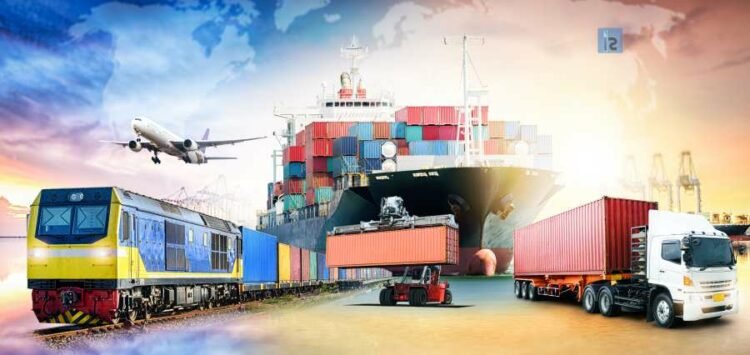Summary: Based on a worldwide survey of global freight forwarders and express carriers, the World Bank’s Logistics Performance Index (LPI) is a benchmarking tool developed by the Washington-based institution that measures performance along the logistics supply chain within a country.
Supply chain reliability is key to logistics performance. In a global environment, consignees require a high degree of certainty as to when and how deliveries will take place. Logistics and transport increasingly play an integral role in global trade relations. The Logistics Performance Index (LPI) is a logistics capacity index which analyses differences between countries in terms of customs procedures, logistics costs and the quality of the infrastructure for overland and maritime transport.
It is an interactive benchmarking tool created to help countries identify the challenges and opportunities they face in their performance on trade logistics and what they can do to improve their performance. The LPI 2018 allows for comparisons across 160 countries. LPI researched and published by the World Bank in a report called “Connecting to the competition – logistics industry in the economy”.
The LPI survey data provide numerical evidence on how easy or difficult it is in these countries to transport general merchandise— typically manufactured products in unitized form. The six main indicators of the international part of the LPI summarize on a five-point scale the assessments of logistics professionals worldwide trading with the country. For individual countries, logistics performance is key to economic growth and competitiveness.
India ranks 44 in the Logistics Performance Index 2018
In 2018, India was ranked 44th in the Logistics Performance Index, a measure through which the World Bank ranks countries based on their logistics performance. India had moved up from 54th position in 2014 to 35th in 2016, riding on massive capacity investments made since 2014, in almost all sectors of transport (by way of mega projects like DFCs/UDAN/ Bharatmala / Sagarmala etc.), major policy reforms like GST and measures in support of EODB.
With the aforementioned efforts it is hoped that in the next 5 years the targets set by the National Logistics policy to improve India’s ranking in Logistics Performance Index to 25 and to reduce cost of logistics in India by 40% from 13% to 8% of GDP will be met. This will ensure that the Logistics sector serves as an engine of growth and a key driver for transforming India to a 5 trillion-dollar economy.
Despite major improvements the India government was aware of the limited scope for growth without concrete reforms in the sector.
High-income countries occupied the top 10 rankings in 2018,3 eight in Europe plus Japan and Singapore—countries that have traditionally dominated the supply chain industry. Germany is at the top, scoring 4.20. The scores of the following nine countries are in a tight interval, with Sweden in 2nd with a score of 4.05 and Finland in 10th with a score of 3.97. The bottom 10 countries are mostly low income and lower-middle-income countries in Africa or isolated areas.
Top 10 LPI Economies, 2018
| Economy | Rank | ||
| Germany | 1 | ||
| Sweden | 2 | ||
| Belgium | 3 | ||
| Austria | 4 | ||
| Japan | 5 | ||
| Netherlands | 6 | ||
| Singapore | 7 | ||
| Denmark | 8 | ||
| United Kingdom | 9 | ||
| Finalnd | 10 |
Among the lower-middle-income countries, large economies such as India (44th with a score of 3.18) and Indonesia (46th with a score of 3.15) and emerging economies such as Vietnam (39th with a score of 3.27) and Côte d’Ivoire (50th with a score of 3.08) stand out as top performers.
The key issues affecting the overall performance included gaps in infrastructure which had so far been developed on a sectoral basis, a varied and silo-based legal and regulatory environment, disjointed IT systems, overdependence on road transport, suboptimal use of existing infrastructure due suboptimal sharing of capacities, lack of skilled manpower, low predictability and visibility in supply chains resulting in heavier than necessary inventory costs and so on.
With logistics costs in the India still high (~13% of GDP in comparison compared to single digit levels in developed countries), integrated development of the logistics sector was identified as a key area of reform.
To achieve this, it was necessary to build a single government institution that would oversee, coordinate with multiple and fragmented stake holders across union government and states and would help develop the logistics sector into a strength for the economy by bringing down logistics costs. This offered a huge scope for improvement in the competitiveness of supply chains in India.
A Govt. of India report ‘TRANSFORMING THE LOGISTICS SECTOR IN INDIA‘ said that with the unveiling of the visionary Make in India, programme in 2014, which aimed at transforming India into a global hub for manufacturing, setting forth of a well-defined aspiration to become a USD 5 trillion economy by the Prime Minister Narendra Modi the need for reforms in the logistics sector was further amplified.
More recently, the clarion call by PM for an ‘Aatmanirbhar Bharat’ – a self-reliant India requires an eminently robust logistics sector.
The Prime Minister has himself on several occasions underlined the importance of strengthening all stakeholders in the supply chain to increase, as well as fulfil, the demand.
It is for the reasons defined above that the Government of India formulated a vision “To develop an integrated cost-effective, reliable, sustainable and digitally enabled logistics ecosystem in the country for accelerated and inclusive economic growth”.
Conclusion
More than ever, comprehensive reforms and long-term commitments are needed from policy makers and private stakeholders. The current LPI data provide a unique and updated reference for better understanding the impediments to trade logistics worldwide and for informing policy making and business decisions.




























